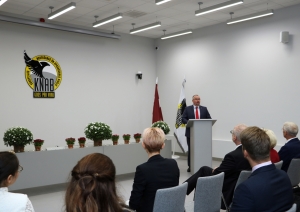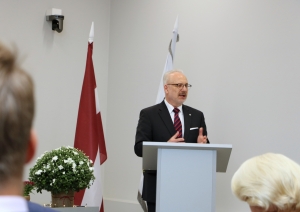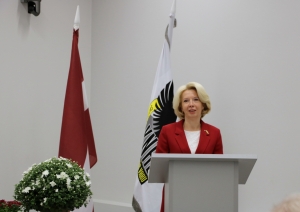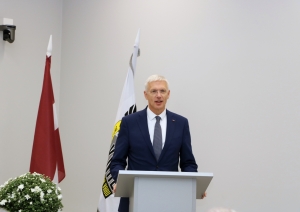KNAB is the leading anti-corruption authority in Latvia, and its functions since establishment have remained unchanged. KNAB prevents and combats corruption, controls the implementation of the financing rules of political parties and associations thereof, as well as monitors compliance with restrictions and prohibitions on pre-election campaigning.
During its operation, KNAB has conducted pre-trial investigation in 565 criminal proceedings, and sent 376 criminal proceedings against 904 persons for initiating criminal prosecution. The corruption schemes investigated by KNAB have become more complex. They are often of an international nature, rather than national. During these years, the amount of bribes offered, promised or given to public officials has also increased. In recent years, the average amount of the bribe in cases sent for prosecution was between 20 to 30 thousand euros. The largest bribe to date in a case investigated by KNAB was EUR 2.1 mill.
In 2020, KNAB, for the first time in its history, proposed to initiate a prosecution against a legal person registered in Latvia for the bribing of a foreign public official. Currently, KNAB has already sent for prosecution four cases for alleged bribery of foreign public officials. This shows the professionality of KNAB, which has also been recognized by the Organization for Economic Cooperation and Development.
Examination of administrative proceedings is another significant part of KNAB’s work. KNAB has made a total of 3280 decisions against public officials for violations of restrictions, prohibitions and duties of the Law on Prevention of Conflict of Interest in Activities of Public Officials. One of the most commonly found violations of the aforementioned Law in the actions of public officials is taking decisions regarding oneself. KNAB has also taken 908 decisions in cases of administrative violations related to violations of the norms of the Law on Financing Political Organizations (Parties) and the Pre-Election Campaign Law.
In order to promote the knowledge of public officials and other public groups about anti-corruption issues, KNAB has educated more than 69 thousand persons throughout Latvia during its activity. The number of educated persons has increased in recent years. KNAB has also actively participated in the development and improvement of anti-corruption regulations, achieving several significant changes. For example, large-scale illegal financing of political parties has been criminalized, as well as the obligation to develop and implement the basic requirements of internal control systems to prevent the risk of corruption and conflict of interest.
Actions taken by Latvia, including KNAB, in the field of anti-corruption have contributed to its rise on the Corruption Perceptions Index. Latvia ranks 15th among countries of the European Union, which is its historically highest ranking. The ranking has grown much faster than Lithuania and Estonia in recent years, and is currently higher than countries such as the Czech Republic, Poland, Italy and Slovenia
Alongside these achievements, the change in public values is also commendable, with society becoming less tolerant of corruption, which is confirmed by the public opinion survey conducted by KNAB in February of this year, in which 85% of the respondents admitted that they refuse the possibility of bribing public officials. In recent years, public willingness to report corruption has also increased - in the survey, 61% of citizens admitted that they would report, and last year KNAB received 1 833 reports on possible corruption from natural and legal persons. This is the highest number of reports received in recent years.
20 years have changed the daily lives of people, as well as the work and priorities of KNAB. For KNAB to fully perform its conferred duties, it must be continuously developed – strengthening its material and technical, human resources and other capacities. One of the most notable changes in recent years is the strengthening of its analytical capacity, which is a fundamental pillar of a modern anti-corruption body, which allows to effectively seem, analyze and fight nests of corruption.









